
Winter can take a toll on your skin, leaving it dry, dull, and lackluster. As the temperatures drop and the air becomes drier, it’s important to adjust your skincare routine to keep your skin radiant and healthy. If you’re an Arlington adult looking for ways to combat winter skin issues, you’re in the right place. In this article, we will provide you with 7 winter skin care tips that will help you maintain a healthy complexion throughout the season.
Whether you have oily, dry, or sensitive skin, understanding the types of skin can help you tailor your winter skincare routine for better results.
From hydrating your skin to protecting it from harsh weather conditions, these tips are designed to address common winter skincare concerns. We will also delve into the importance of moisturizing, exfoliating, and using SPF even when the sun isn’t shining bright. Whether you have oily, dry, or sensitive skin, these tips are applicable to everyone.
Don’t let the winter freeze take a toll on your skin. Take charge of your skincare routine with these 7 essential tips and keep your skin looking radiant and healthy all winter long.
Importance of Winter Skin Care
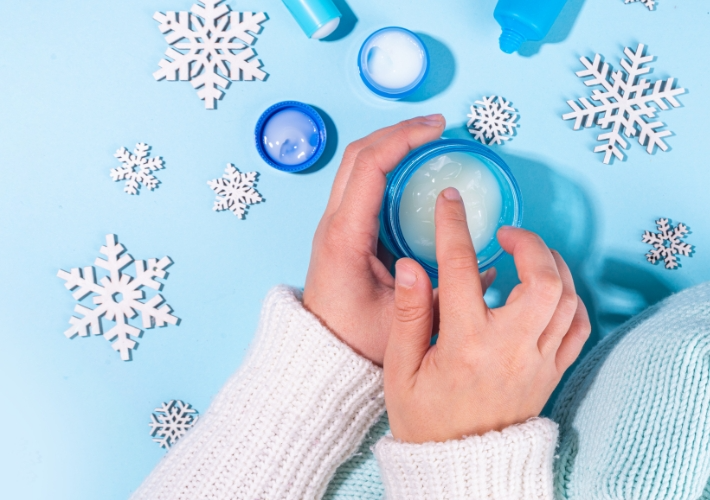
During the winter months, the air becomes drier and colder, which can take a significant toll on our skin. The drop in temperature and humidity levels can lead to a variety of skin issues, such as dryness, flakiness, irritation, and even premature aging. It’s essential to adjust your skincare routine to combat these challenges and keep your skin healthy and radiant throughout the winter season.
Proper winter skin care is crucial for maintaining the skin’s natural barrier function, which helps protect it from environmental stressors. When the skin’s barrier is compromised, it becomes more susceptible to moisture loss, leading to dryness, inflammation, and other skin concerns. By implementing the right winter skin care tips, you can nourish and hydrate your skin, preventing these issues and keeping it looking its best.
Furthermore, winter skin care is not just about addressing the immediate concerns of the season but also about long-term skin health. Neglecting your skin during the colder months can lead to long-lasting damage, such as premature wrinkles, age spots, and even an increased risk of skin cancer. By prioritizing your winter skin care routine, you’re investing in the overall health and youthfulness of your skin, ensuring that it remains radiant and glowing year-round.
Common Skin Issues During Winter
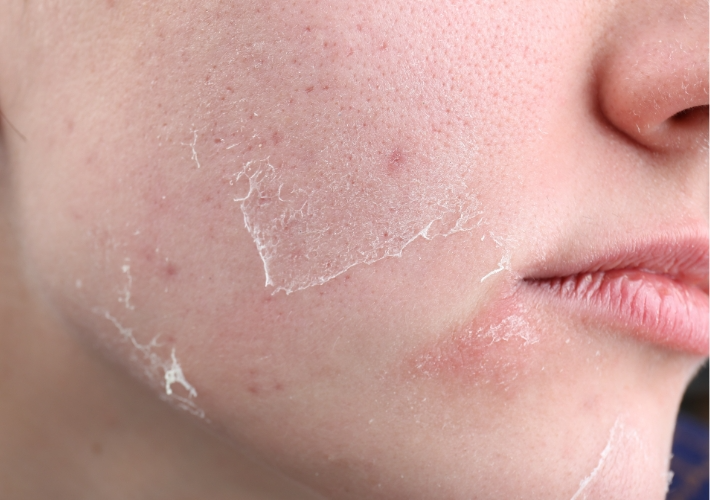
One of the most common skin issues during the winter months is dryness. The cold, dry air and the use of indoor heating can strip the skin of its natural oils, leaving it feeling tight, flaky, and uncomfortable. Dry skin is not only unsightly but can also lead to other problems, such as irritation, redness, and even cracking.
Another common winter skin concern is sensitivity. The harsh weather conditions, combined with the use of harsh skincare products, can cause the skin to become more reactive and sensitive. This can manifest in redness, stinging, or even a burning sensation when using certain products.
Wintertime can also exacerbate existing skin conditions, such as eczema, psoriasis, and rosacea. The dry air and temperature fluctuations can trigger flare-ups, leading to increased inflammation, itching, and discomfort.
In addition to these common issues, winter can also contribute to a dull, lackluster complexion. The lack of sun exposure and the overall environmental stress can result in a tired, uneven skin tone, making it appear less radiant and healthy.
Addressing these winter skin concerns is crucial for maintaining a healthy, glowing complexion throughout the colder months. If you’re searching for specific advice, be sure to check out our skin care tips for men to help address unique winter skincare concerns for male skin. By incorporating the right skincare tips and strategies, you can nourish and protect your skin, keeping it looking and feeling its best, even in the harshest winter conditions.
7 essential Tips for Winter Skin Care
1. Moisturize Regularly
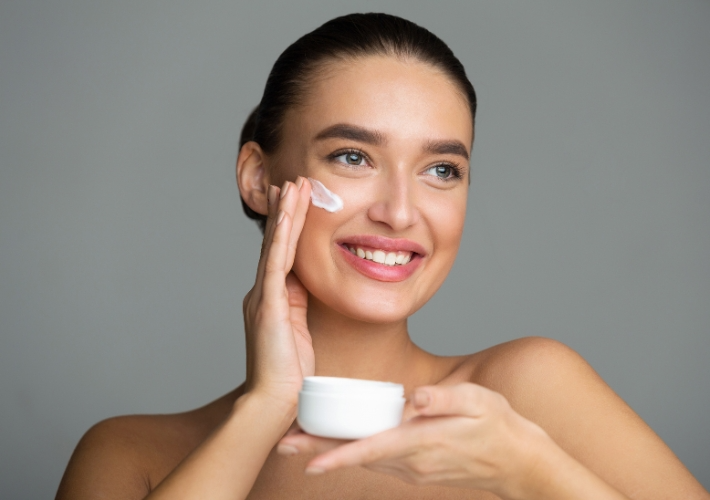
Moisturizing is the cornerstone of any effective winter skin care routine. During the colder months, when the air is dry and the skin is more prone to dehydration, it’s essential to regularly apply a nourishing moisturizer to lock in moisture and prevent water loss.
When choosing a moisturizer for winter, look for formulas that are rich, creamy, and deeply hydrating. Ingredients like shea butter, ceramides, and hyaluronic acid can help replenish the skin’s natural moisture levels and strengthen the skin’s protective barrier.
It’s important to apply your moisturizer immediately after cleansing, while the skin is still damp. This helps to seal in the moisture and prevent it from evaporating. or those looking to enhance their routine with sun protection, consider using one of the best natural and organic sunscreens that not only moisturizes but protects your skin from winter sun exposure. Be sure to massage the product into your skin gently, using circular motions, to ensure even distribution and absorption.
In addition to your regular moisturizer, consider incorporating a facial oil or serum into your routine. These concentrated formulas can provide an extra boost of hydration and nourishment, helping to combat the drying effects of winter weather. Look for oils rich in omega-3 and omega-6 fatty acids, such as argan or rosehip seed oil, to help soothe and replenish the skin.
Remember to moisturize not just your face but your entire body as well. The skin on your hands, feet, and elbows is particularly prone to dryness during the winter, so be sure to apply a rich, creamy body moisturizer after showering or bathing to keep your skin soft, supple, and healthy-looking.
2. Use a Humidifier
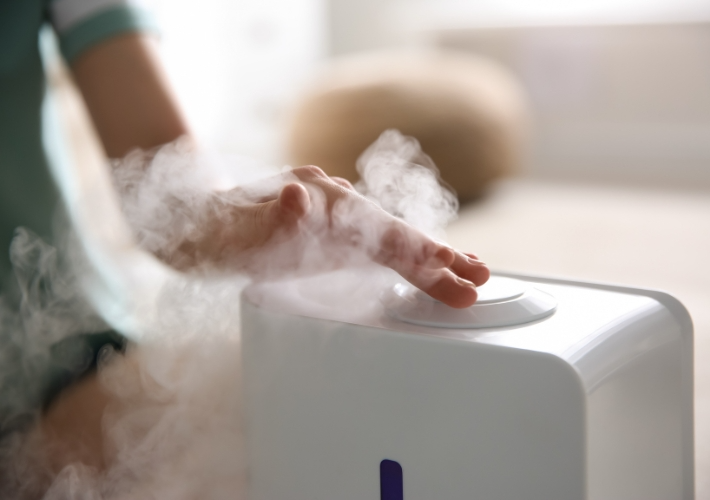
One of the most effective ways to combat dry, winter skin is to use a humidifier. Dry indoor air, caused by the use of heating systems, can strip the skin of its natural moisture, leading to dryness, flakiness, and irritation.
By using a humidifier, you can add much-needed moisture back into the air, helping to keep your skin hydrated and healthy. While humidifiers help in winter, summer skin care tips can also play a vital role in keeping your skin balanced year-round by addressing the specific challenges of warmer months. Aim to maintain a humidity level between 30-50% in your living and working spaces to provide optimal conditions for your skin.
When choosing a humidifier, consider factors such as the size of the room, the type of technology (e.g., cool mist or warm mist), and the ease of maintenance. Larger rooms may require a more powerful humidifier, while those with sensitive skin may prefer a cool mist option to avoid the risk of burns.
In addition to using a humidifier, you can also try incorporating other moisture-boosting techniques into your winter skin care routine. This can include taking shorter, lukewarm showers, using a gentle, non-drying cleanser, and applying a hydrating face mask once or twice a week.
Remember to clean your humidifier regularly to prevent the growth of mold and bacteria, which can be harmful to your health and skin. By keeping your indoor environment properly humidified, you’ll be able to maintain a healthy, radiant complexion all winter long.
3. Protect Your Skin from the Cold

Protecting your skin from the harsh winter elements is crucial for maintaining its health and appearance. The combination of cold temperatures, wind, and precipitation can strip the skin of its natural oils, leading to dryness, redness, and irritation.
When venturing outdoors, be sure to cover up as much exposed skin as possible. Wear a scarf, hat, and gloves to protect your face, neck, and hands from the biting cold. Look for fabrics that are breathable and moisture-wicking, such as wool or synthetic blends, to prevent moisture from becoming trapped against your skin.
In addition to covering up, it’s important to apply a nourishing, protective barrier to your skin before going outside. Look for a rich, creamy moisturizer or a specialized winter skin care product that contains ingredients like shea butter, glycerin, or dimethicone to create a protective layer against the elements.
If you’ll be spending extended periods of time outdoors, consider using a facial oil or serum underneath your moisturizer to provide an extra layer of hydration and nourishment. Oils rich in antioxidants, such as rosehip seed oil or argan oil, can help soothe and protect the skin from environmental stressors.
Remember to reapply your moisturizer and protective products throughout the day, especially if you’ll be engaging in activities that may cause sweating or exposure to the elements. By keeping your skin well-protected, you can prevent dryness, irritation, and other winter skin woes, ensuring a healthy, radiant complexion all season long.
4. Stay Hydrated

Maintaining proper hydration is essential for healthy, glowing skin, especially during the winter months. When the air is dry and the body is exposed to harsh environmental conditions, it’s crucial to ensure that you’re drinking enough water to keep your skin nourished and replenished.
Aim to drink at least 8 glasses of water per day, or more if you’re engaging in physical activity or spending a lot of time outdoors. Staying hydrated from the inside out can help to plump up the skin, reduce the appearance of fine lines and wrinkles, and promote a healthy, radiant complexion.
In addition to drinking water, you can also incorporate water-rich foods into your diet to boost your skin’s hydration levels. Fruits and vegetables like cucumbers, watermelon, and leafy greens are excellent sources of hydration and can provide your skin with essential vitamins and minerals.
If you find it challenging to drink enough water throughout the day, try incorporating hydrating herbal teas, infused waters, or even popsicles made with fresh fruit into your routine. These can be a delicious and refreshing way to increase your water intake and keep your skin looking its best.
Remember, proper hydration is not just about drinking water – it’s also about maintaining healthy skin barrier function. By keeping your skin well-hydrated from the inside out, you can help to prevent moisture loss, reduce the risk of irritation, and promote a healthy, radiant complexion all winter long.
5. Avoid Hot Showers

While a steamy, hot shower may feel soothing on a cold winter day, it can actually be detrimental to your skin’s health. Prolonged exposure to hot water can strip the skin of its natural oils, leading to dryness, irritation, and even accelerated aging.
Instead of taking long, hot showers, aim for shorter, lukewarm sessions. The cooler temperature will be less harsh on your skin, helping to preserve its natural moisture and protective barrier. If you find it difficult to adjust to a cooler temperature, try gradually reducing the water temperature over time to ease the transition.
After showering, be sure to pat your skin dry gently with a soft towel, rather than rubbing it vigorously. This will help to prevent further irritation and moisture loss. Immediately after drying off, apply a nourishing moisturizer to lock in hydration and prevent your skin from feeling tight or uncomfortable.
If you find that your skin is still feeling dry and tight after your shower, consider adding a soothing, fragrance-free body oil or cream to your routine. These products can help to replenish the skin’s natural oils and provide an extra layer of hydration, leaving your skin feeling soft, supple, and healthy.
Remember, the key to maintaining healthy, glowing skin during the winter is to be gentle and avoid any practices that may strip or irritate it. By taking shorter, lukewarm showers and following up with nourishing skincare products, you can keep your skin looking and feeling its best all season long.
6. Exfoliate Gently
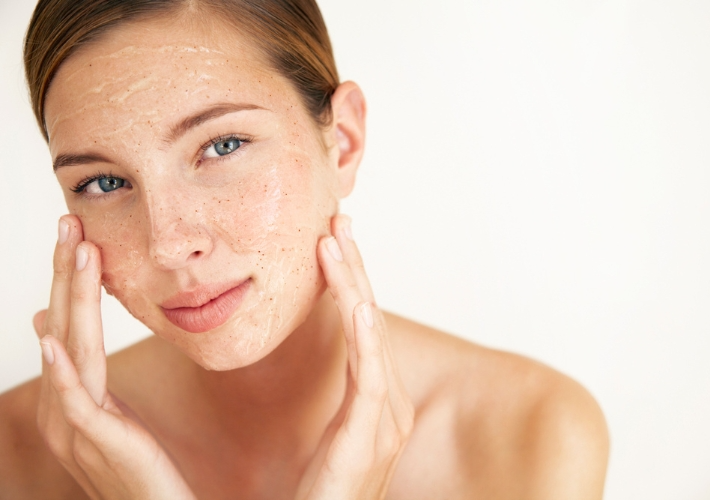
Exfoliation is an essential step in any winter skin care routine, as it helps to remove the buildup of dead skin cells that can contribute to dullness, dryness, and uneven texture. However, it’s important to approach exfoliation with caution during the colder months, as the skin can be more sensitive and prone to irritation.
Instead of using harsh, abrasive scrubs, opt for gentle, chemical exfoliants that contain ingredients like alpha-hydroxy acids (AHAs) or beta-hydroxy acids (BHAs). These gentle chemical exfoliants can help to slough off dead skin cells without causing excessive irritation or stripping the skin of its natural oils.
When incorporating exfoliation into your routine, start with a mild product and use it no more than 1-2 times per week. Avoid over-exfoliating, as this can compromise the skin’s protective barrier and lead to increased sensitivity, redness, and dryness.
If you have sensitive skin, you may want to consider using a physical exfoliant, such as a soft, microfiber washcloth or a gentle facial brush, instead of a chemical exfoliant. Be sure to use these tools gently and avoid scrubbing too vigorously, as this can also cause irritation.
After exfoliating, be sure to follow up with a nourishing moisturizer to replenish the skin’s hydration levels and soothe any potential irritation. This will help to ensure that your skin remains healthy, glowing, and well-protected throughout the winter season.
7. Use Sunscreen
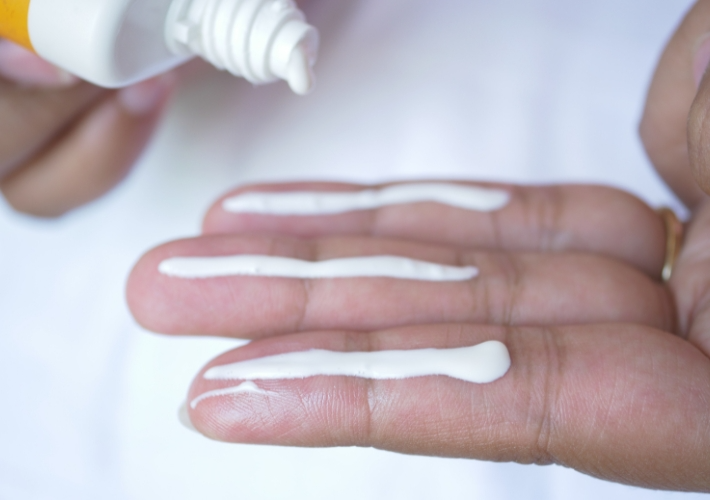
While it may seem counterintuitive, wearing sunscreen is just as important during the winter as it is during the summer. The sun’s UV rays can still penetrate through clouds and reflect off of snow, causing damage to the skin and increasing the risk of premature aging, sun spots, and even skin cancer.
When choosing a sunscreen for winter, look for a formula that is moisturizing and contains broad-spectrum protection, meaning it shields your skin from both UVA and UVB rays. Consider using a sunscreen that is specifically formulated for the face, as these tend to be lighter and more comfortable to wear under makeup or other skincare products.
Apply your sunscreen as the last step in your morning skincare routine, making sure to cover all exposed areas of your skin, including your face, neck, and hands. Reapply every 2 hours if you’ll be spending extended periods of time outdoors, and don’t forget to protect your lips with a nourishing, SPF-infused lip balm.
If you find that traditional sunscreen formulas feel too heavy or greasy on your skin during the winter, consider using a mineral-based sunscreen instead. These formulas contain active ingredients like zinc oxide or titanium dioxide, which provide effective sun protection without the heavy, occlusive feel.
Remember, even on cloudy or overcast days, the sun’s rays can still penetrate through and cause damage to your skin. By making sunscreen an integral part of your winter skin care routine, you can help to prevent premature aging, sun spots, and other long-term skin concerns, keeping your complexion healthy and radiant all season long.
Conclusion and Final Tips for Winter Skin Care
Maintaining healthy, glowing skin during the winter months requires a comprehensive approach to your skincare routine. By incorporating the 7 tips outlined in this article, you can combat the drying effects of the cold, dry air and keep your skin looking and feeling its best, even in the harshest of winter conditions.
Remember, consistency is key when it comes to winter skin care. Stick to your routine, and don’t be afraid to adjust it as needed to address any changing skin concerns. Additionally, consider seeking the advice of a dermatologist or skincare professional if you’re struggling with persistent skin issues or have any concerns about your winter skin care regimen.
As a final note, don’t forget to listen to your skin and be gentle with it. If you’re local, a visit to a skin care and facial clinic in Arlington, VA can provide personalized treatments and professional advice to enhance your winter skincare routine. Avoid using harsh, drying products, and instead, focus on nourishing, hydrating formulas that will help to strengthen the skin’s natural barrier and lock in moisture. With the right winter skin care tips and a little bit of TLC, you can keep your skin radiant, healthy, and glowing all season long.
